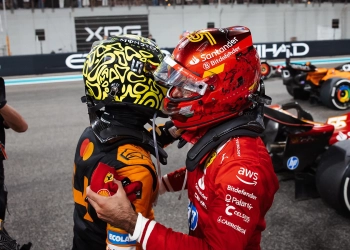Mercedes boss Toto Wolff has effusively commended the introduction of the cost cap into Formula 1 by claiming it has helped to protect the top teams from themselves.
A restriction on the amount of money the constructors could outlay across a calendar year was finally brought into the sport for the first time in its history at the start of the 2021 season, with the primary aim of producing a closer and more competitive racing spectacle.
Whereas previously there had always been a free reign on spending, handing a considerable advantage to the top teams with bigger budgets in the development race, the cap has instilled a fairer degree of financial parity by placing every outfit on a much more level playing field.
When the limitations were first announced in October 2019, the FIA confirmed the figure would be set at $175 million for the 2021 campaign, which was reduced to $145m amid the outbreak of the Covid-19 pandemic.
But confirmation of further tweaks to slightly open up the strict financial boundaries placed on the teams ahead of the new season were made at the end of last year because of the decision to expand the number of sprint events from three in each of the last two years to double that number in 2023.
Although the financial constraints failed to bring about a convergence in the pecking order as the leading three sides remained a hefty distance clear of the rest, Wolff has praised the impact the cost cap has had on putting a stop to spending spiralling out of control and affording potentially more opportunities to the lesser teams down the line.
“The key change was the cost cap introduced by Chase Carey to protect us from ourselves,” Wolff said in an interview with The Times.
“The situation before was that Red Bull, Ferrari and Mercedes were fighting in their own league in a revolving spending war, but the smaller teams were not competitive.
Wolff’s successful Mercedes outfit spent £324.9m during their victorious 2020 title-winning season in the final year before the cap; comparatively, once limits on spending were monitored, Red Bull proceeded to spend only £230m in total on the package that powered Max Verstappen to world championship glory.
“The cost cap was based on a blueprint that existed in the US for a long time. In the NFL and NBA, you have a limit to what you can spend on your roster,” Wolff added.
“F1 introduced a cost cap on technical development, which was the game changer for the business side of F1. Suddenly, we were profitable.”









